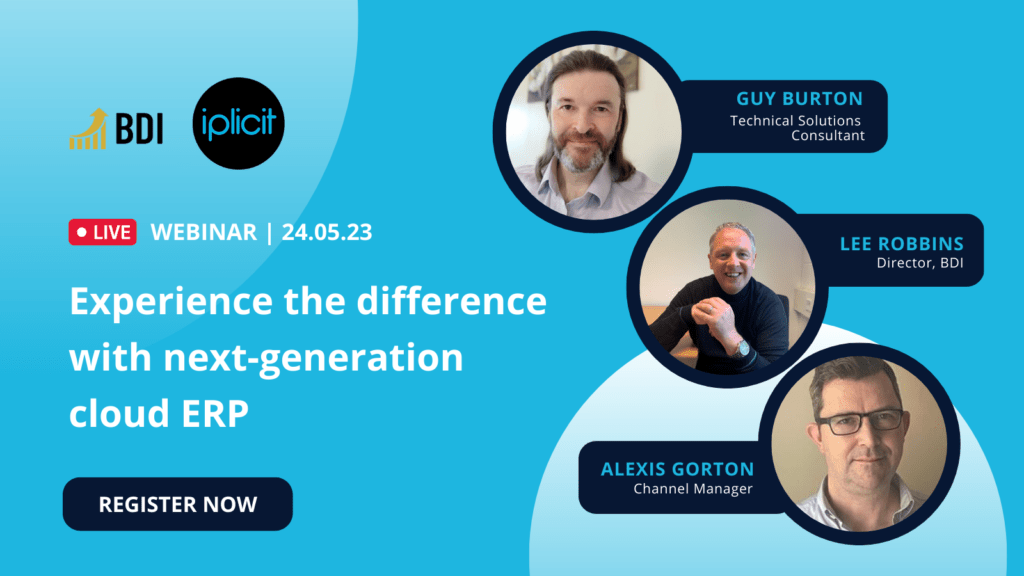Enterprise Resource Planning, or ERP, refers to an integrated suite of business applications used to manage day-to-day business activities. They share a common process and business model, covering broad end-to-end operational processes such as accounting, project management, and supply chain operations. A complete ERP suite also includes performance management tools which allows organisations to plan, budget, and report on financial results.
A key benefit of ERP systems is certainly the ability to tie multiple business processes together and allow data to flow between them. Through collecting shared transactional data from multiple sources, ERP systems provide accurate data from a single source, without duplication.
ERP applications automate and support a variety of administrative and operational business processes across a range of industries. They can therefore be used throughout an organisation in various departments, including customer-facing, administrative, and asset management aspects of an organisation.
Table of Contents
Join the BDI mailing list
Keep up to date with the latest events, webinars, and product launches from BDI.
Sign UpWhat are the fundamentals of ERP?
ERPs are designed around a schema (a single, defined data structure) that typically has a common database. This ensures the information used across an enterprise is based on common definitions and user experiences, and therefore standardised. These core elements are then connected within business processes driven by workflows across departments (i.e., marketing, operations, HR, etc.) to connect the systems and people who use them.
By and large, ERP is a tool for integrating people, processes, and technologies across an organisation.
One of the key fundamentals of ERP is the central collection of data for wider distribution. These systems bring together information from disconnected sources to consolidate it in order to ensure decisions can be made with confidence. Data accuracy and integrity is thus created through this standardised and centralised data.
What value does ERP create for my organisation?
Data is one of the most important resources for an organisation. In light of this, using an ERP solution to consolidate data can improve workflows and lead to greater savings on costs.
Further examples of benefits includes:
- Reduced risk as a result of improved data accuracy and financial controls.
- Improved efficiency owing to a common user experience across well-defined business processes.
- Lower operational costs through streamlined processes.
- Consistent infrastructure with all business activities having the same appearance.
- Improved business insight in light of real-time information generated in reports.
- Higher user-adoption rates from a common user experience and design.
- Enhanced collaboration between staff through users sharing data in purchase orders, contracts, and requisitions.
- Lower management and operational costs as a result of uniform and integrated systems.
Does my organisation already use an ERP?
There are many options of ERP systems available for organisations to apply to their business. It is therefore possible that your organisation is already using an ERP to improve your workflow. Below are a few examples of ERP service providers, as idenitfied in Gartner’s Magic Quadrant Report 2020:
- Oracle ERP Cloud
- SunSystems
- Infor
- SAP Business One
- Sage Intacct
If your organisation is already using an ERP, it is important to stay aware of ERP vendors. Sometimes a vendor can offer a greater level of support for your projects and platforms, and some can offer a lower price than your current plan.
How do I choose a vendor?
To begin with, an organisation’s stakeholders should decide what is the most important aspect of an ERP for the specific organisation and users. Approach stakeholders from different departments to ensure the system supports tasks and roles throughout the organisation.
After that, identify current pain points and issues that inform the requirements for your system. Once you have identified your needs, start researching ERP vendors who are able to support you. Find solutions built specifically for your industry, and talk to sales reps.
A key method to learn more about an ERP vendor is to arrange a demonstration. For example, we offer a range of solutions at BDI to help organisations use data intelligently and work closely with partners to offer close support and a fair price to our customers.
Existing SunSystems users, for example, can save 20% on their upgrades and projects on average through consulting BDI. We offer a fixed price consulting and project management fee, avoiding any unnecessary hidden costs for customers. With this in mind, one of our business experts will work closely with your organisation to find areas of improvement through ERP application.
Our team consists of experienced and knowledgeable professionals who have worked with SunSystems and its companion products for many years. We have consequently built the foundation of our business on successful customer engagement. If you feel that the level of support from your SunSystems partner is not what you expect, then contact us. We would welcome the opportunity to show you how we make a difference.
Ready to start?
Our team of data intelligence experts are ready and waiting to work with your organisation


Recent Comments